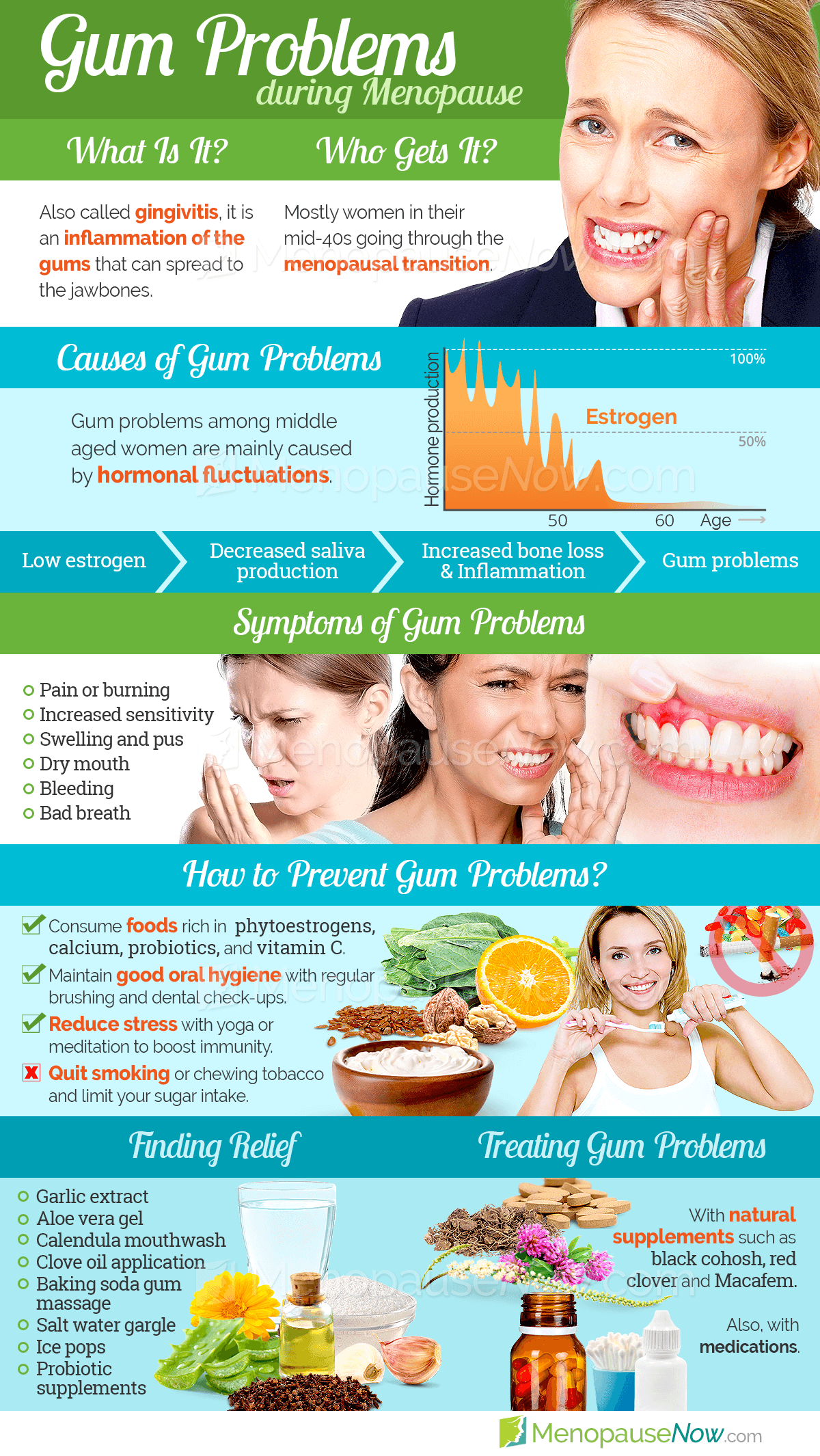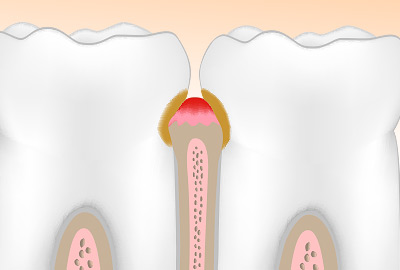Did You Know?
Those with gum disease are more likely to develop heart disease.
During menopause and other times of hormonal fluctuation, women are at a greater risk of dental problems, including gum problems. During menopause, this is most commonly associated with changing estrogen levels and the natural aging process.
Because of this increased risk of dental and gum problems, it is essential that menopausal women understand the symptoms, causes, and treatments of dental and gum problems. Read on to learn more about gum problems during menopause.
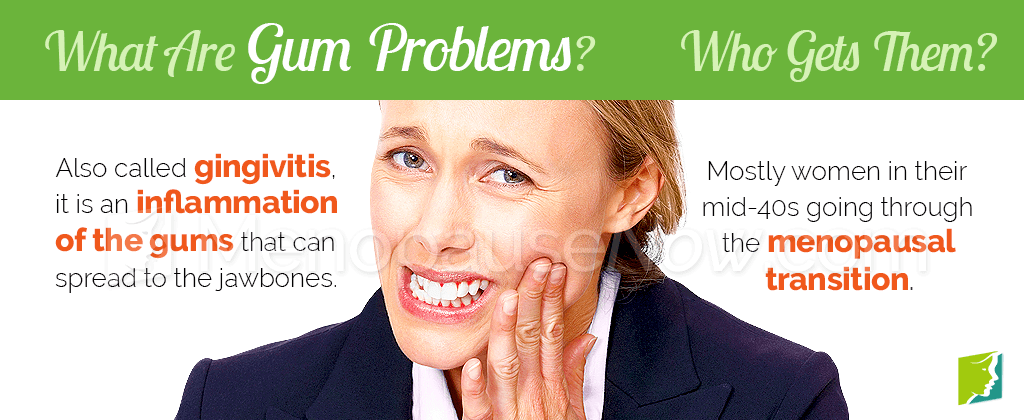
About Gum Problems
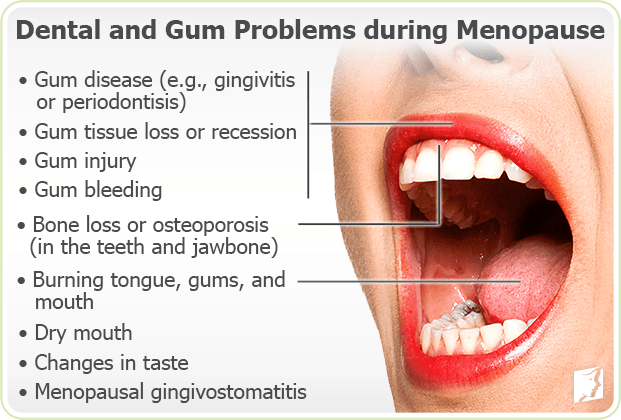
Gingivitis, the medical term for gum disease, develops when bacteria proliferate and build up between your gums and teeth, which can lead to irritation, inflammation, and bleeding. If gingivitis is left untreated, it can lead to more serious problems like periodontitis.
Did You Know?
Menopause also increases the risk of bone problems, which can affect the teeth and jawbone. The risk of osteoporosis, which can target the teeth and jaw, significantly increases following menopause.
Gum problems can be characterized by myriad symptoms. Please read on to learn how to identify these symptoms, their causes, and what you can do about them.
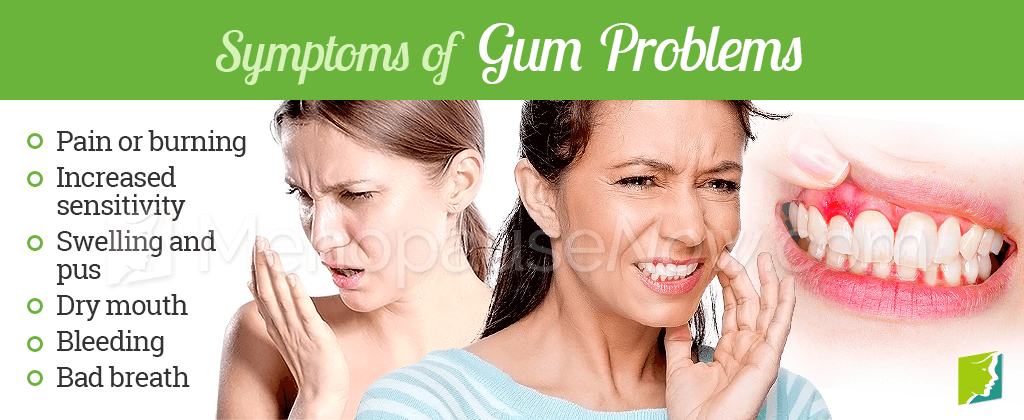
Symptoms of Gum Problems
While many women are aware of some of the symptoms associated with gum problems, it is important to highlight any potential warning signs.
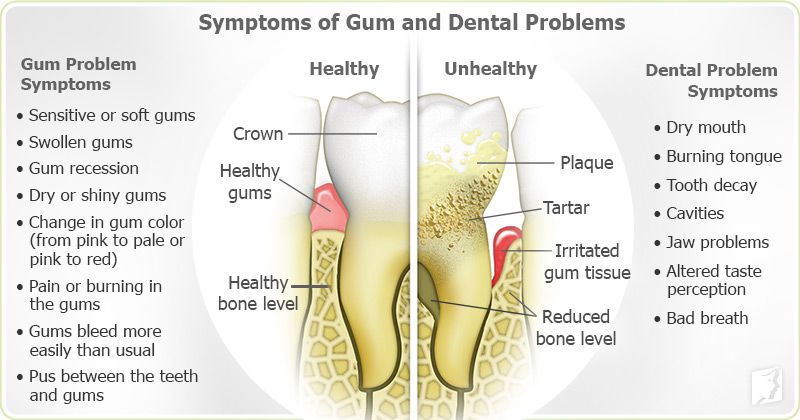
Did You Know?
Many people first detect gum problems because their toothbrush bristles turn pink while brushing, which is a sign that their gums are bleeding with slight pressure.
If a woman experiences these or any other abnormal gum problems at any time, consulting a dental care professional or primary care physician is recommended.
While a visit to the dentist's chair is usually the only sure way to determine the cause of gum problems, it is very important to be informed of the possible causes of gum problems, especially during menopause. Read on to discover the common causes of gum problems during menopause.
Causes of Gum Problems
While many factors can contribute to gum problems, the most common cause of gum problems during menopause is fluctuating estrogen levels. Estrogen affects many oral tissues, including the gums, salivary glands, and jawbones.
Did You Know?
During menopause, as the body prepares to shut down the reproductive functions of the ovaries, estrogen levels begin to spike and fall erratically, eventually leading to a significantly decreased production of estrogen. This drop in estrogen can increase the risk of gum problems, tooth loss, and osteoporosis.
In addition to hormonal causes, other factors can increase the risk of gum problems. These should be discussed in greater detail with a qualified dental professional. Read on to learn more about how to treat gum problems that occur during and after menopause.
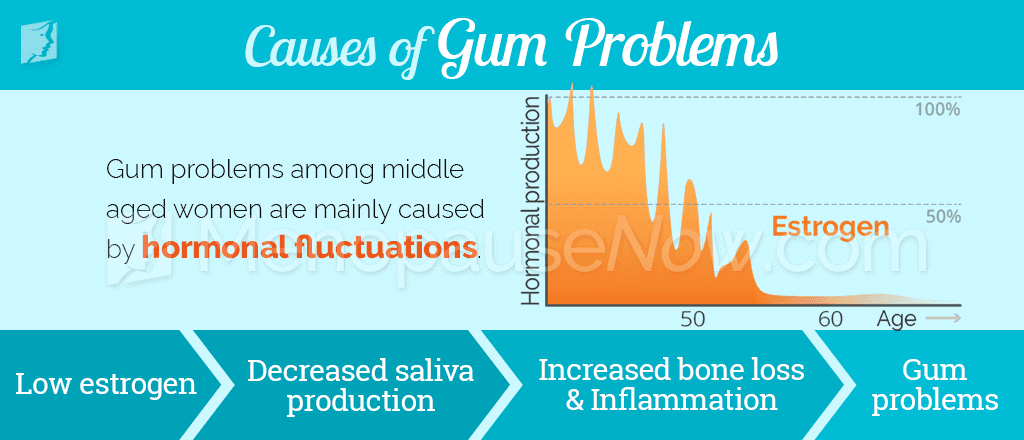
Gum Problems Treatments
Preventing gum problems
When it comes to gum problems, prevention is key. A woman can make the following lifestyle changes to prevent or mitigate the effects of gum problems during menopause:
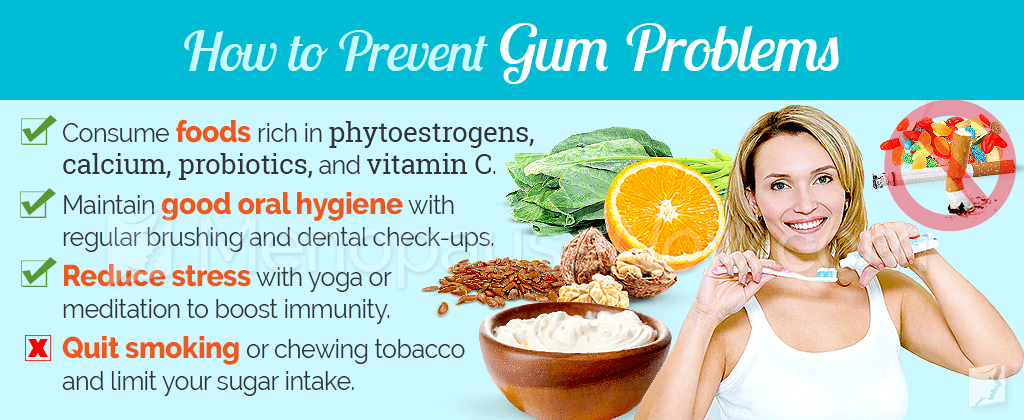
Getting to the root of the problem
While these measures can go a long way toward treating and managing gum problems, they are unable to address the specific root cause of hormonal imbalance that occurs during menopause. Luckily, there are safe and natural ways to address this problem of hormonal imbalance.
Natural treatments can help a woman manage and reverse gum problems, as well as other menopause symptoms. Natural remedies, especially in combination with the lifestyle adjustments, are typically the first recourse in treating gum problems and other menopause-related symptoms.

It is generally recommended that women who suffer from mild gum problems during menopause and wish to treat them begin with lifestyle changes, then move onto alternative medicines and finally, look to medications or surgery when other methods are ineffective. Click on the following link to learn specific treatments for gum problems in these three categories.
Sources
- Dutt, P. , Chaudhary, S.R. & Kumar, P. (2013). Oral Health and Menopause: A Comprehensive Review on Current Knowledge and Associated Dental Management. Annals of Medical & Health Sciences Research, 3(3), 320-323. doi: 10.4103/2141-9248.117926
- Ficarra, G. & Baninati, F. (2007). Bisphosphonate - related osteonecrosis of the jaws: the point of view of the oral pathologist. Clinical Cases in Mineral and Bone Metabolism, 4(1), 53-57. Retrieved from http://www.ncbi.nlm.nih.gov/pmc/articles/PMC2781184/
- López-Marcos, J.F. , García-Valle, S. & García-Iglesias, A.A. (2005). Periodontal aspects in menopausal women undergoing hormone replacement therapy. Medicina oral, patología oral y cirugía bucal, 10(2), 132-141. Retrieved from http://www.ncbi.nlm.nih.gov/pubmed/15735546
- National Institute of Dental and Craniofacial Research. (2013). Periodontal (Gum) Disease: Causes, Symptoms, and Treatments. Retrieved April 27, 2016, from http://www.nidcr.nih.gov/oralhealth/Topics/GumDiseases/PeriodontalGumDisease.htm
- Saluja, P. (2014). Comparative Evaluation of the Effect of Menstruation, Pregnancy and Menopause on Salivary Flow Rate, pH and Gustatory Function. Journal of Clinical and Diagnostic Research, 8(10), ZC81-85. doi: 10.7860/JCDR/2014/9935.5071

